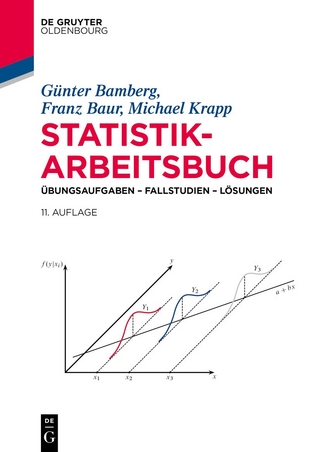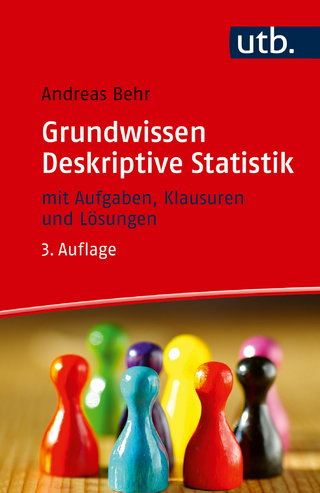
Impact Evaluation
Cambridge University Press (Verlag)
978-1-107-04246-9 (ISBN)
In recent years, interest in rigorous impact evaluation has grown tremendously in policy-making, economics, public health, social sciences and international relations. Evidence-based policy-making has become a recurring theme in public policy, alongside greater demands for accountability in public policies and public spending, and requests for independent and rigorous impact evaluations for policy evidence. Frölich and Sperlich offer a comprehensive and up-to-date approach to quantitative impact evaluation analysis, also known as causal inference or treatment effect analysis, illustrating the main approaches for identification and estimation: experimental studies, randomization inference and randomized control trials (RCTs), matching and propensity score matching and weighting, instrumental variable estimation, difference-in-differences, regression discontinuity designs, quantile treatment effects, and evaluation of dynamic treatments. The book is designed for economics graduate courses but can also serve as a manual for professionals in research institutes, governments, and international organizations, evaluating the impact of a wide range of public policies in health, environment, transport and economic development.
Markus Frölich is Director of the Center for Evaluation and Development (C4ED), Professor of Econometrics at the Universität Mannheim, Germany and J-PAL Affiliate. He has twenty years of experience in impact evaluations, including the development of new econometric methods and numerous applied impact evaluations for organisations such as Green Climate Fund, International Fund for Agricultural Development (IFAD), International Labour Organization (ILO), UNICEF, World Food Programme (WFP), and the World Bank. Stefan Sperlich is Full Professor of Statistics and Econometrics at the Université de Genève, has about fifteen years of experience as a consultant, and was co-founder of the Poverty, Equity and Growth in Developing Countries research centre, Göttingen. He has published in various top ranked journals and was awarded with the 2000–2002 Koopmans econometric theory prize.
1. Basic definitions, assumptions, and randomized experiments; 2. An introduction to nonparametric identification and estimation; 3. Selection on observables: matching, regression and propensity score estimators; 4. Selection on unobservables: nonparametric IV and structural equation approaches; 5. Difference-in-differences estimation: selection on observables and unobservables; 6. Regression discontinuity design; 7. Distributional policy analysis and quantile treatment effects; 8. Dynamic treatment evaluation.
| Erscheint lt. Verlag | 21.3.2019 |
|---|---|
| Zusatzinfo | 73 Halftones, black and white |
| Verlagsort | Cambridge |
| Sprache | englisch |
| Maße | 178 x 253 mm |
| Gewicht | 1000 g |
| Themenwelt | Wirtschaft ► Volkswirtschaftslehre ► Ökonometrie |
| ISBN-10 | 1-107-04246-1 / 1107042461 |
| ISBN-13 | 978-1-107-04246-9 / 9781107042469 |
| Zustand | Neuware |
| Haben Sie eine Frage zum Produkt? |
aus dem Bereich


